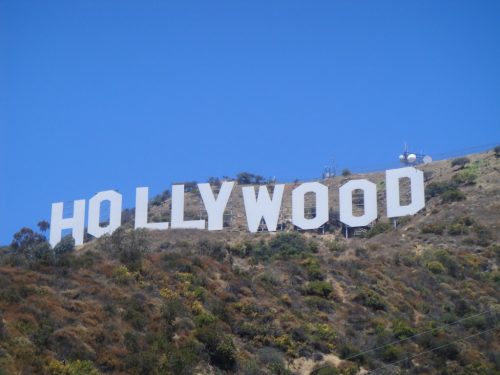By Milos Stehlik
The truth is, we all do.
Film actors, directors, “the industry” do because it’s their moment to shine in front of a global audience. We do, caught up as we are in the endless handicapping, all the office pools, the anticipation of the fashion, and the wait for someone’s faux pas at the ceremony so that we can all be critics afterward. Surely all of us think that another film was “better” and should have won in some category. The Oscars is the most democratic event the movies take on all year – they make us all realize that movies are such a central, if not critical, part of our lives: they matter.
Steve James, the Chicago documentary filmmaker of, among other films, Hoop Dreams, was at this year’s Academy Awards, nominated for Best Documentary Feature for Abacus: Small Enough to Jail, about the small Chinese-community bank which became the only bank to be prosecuted after the financial crisis. He told me that, despite the surreal nature of “being there,” at some point he realized that it was just another awards show, and he headed to the lobby (along with, it seems, quite a few others) to get a drink.
The Academy, in face of the “Oscars Too-White” campaign of a couple of years ago, faced a continuing challenge of the lack of diversity in Hollywood – women represent 8% of the directors of the top 100-grossing films, only 3% of Hollywood films were made by Asian-American directors over the past 10 years. This was amplified by the MeToo movement in the wake of the Harvey Weinstein scandal. If, in fact, this leads to serious changes in ending sexual harassment and discrimination, and to greater inclusivity for women and minorities, it may ironically turn out to be Harvey Weinstein’s greatest legacy – bigger than Miramax and the Weinstein Company.
No doubt you saw the show. Jimmy Kimmel, the emcee, addressed these issues in jokes from the very start of the show, and it continued throughout the evening. He referred to the on-stage Oscar statue as “He keeps his hands where you can see them, never says a rude word, and most importantly, no penis at all.” Ashley Judd and Mira Sorvino came on stage to say about the MeToo movement, “We are going forward until we have an equitable and safe world for women.” Salma Hayek and Annabella Sciorra, two more women among Weinstein’s victims, were on stage. Emma Stone, introducing the best Director nominees, labeled the five nominations as those for “four men and Greta Gerwig.”
Jordan Peele became the first African-American filmmaker to receive the Academy Award for Best Original Screenplay for Get Out. In an original, funny introduction, Maya Rudolph and Tiffany Haddish comforted the (mostly white) audience with, “Don’t worry there are so many more white people to come.” And the hyper-ventilating Frances McDormand, accepting the award for Best Actress, asked all the women who were nominated to stand up and then admonished, “Look around you. We all have projects we need financed,” and asked for an “inclusion rider” in contracts – roughly stating that the film being made is going to be representative of society rather than all-male, all-white.
What does all this mean? Not much, unless there is substantive change, not just in Hollywood, but everywhere. But at least the Academy is trying to face the issue and accepting the responsibility that as the world’s greatest “empathy machine” (the words of Roger Ebert) carries with it.
The immigrants who always made up Hollywood were also present in force, and if the night belonged to anyone, it was to Latinos: Mexican-American filmmaker Guillermo del Toro won four Oscars including Best Picture for his wonderful fantasy, The Shape of Water, the animation feature Coco won for Best Animated Feature and Best Original Song. And Chile’s A Fantastic Woman, directed by Sebastian Lelio, won for Best Foreign Language Picture, with Daniela Vega as the first transgender actress in the lead.
One tends to forget that the large presence of the Brits and Aussies in Hollywood also represents immigrants. Roger Deakins, who won as Best Cinematographer and Gary Oldman as Best Actor, were among them. In a call out for the Dreamers, Lupita Nyong’o, an immigrant from Kenya, and Kumail Nanjiani from Pakistan (he directed the original and funny The Big Sick), pointed to themselves as dreamers, and said, “To all the Dreamers out there, we stand with you.”
Should Hollywood be involved in politics? Film is politics. As that great empathy machine, it can be a tool of propaganda, or it can connect us. This choice — in which films we choose to see, which filmmakers we support – is up to all of us, the audience.
(Editor’s Note: Milos Stehlik is the Founder and Artistic Director of Facets which for 41 years has harnessed the power of film to change lives and thus change the world. Facets hosts year-round educational programs and the Chicago International Children’s Film Festival, the most celebrated children’s film festival in North America. For further information call 773-281-9075, ext. 3052 or visit facets.org)







